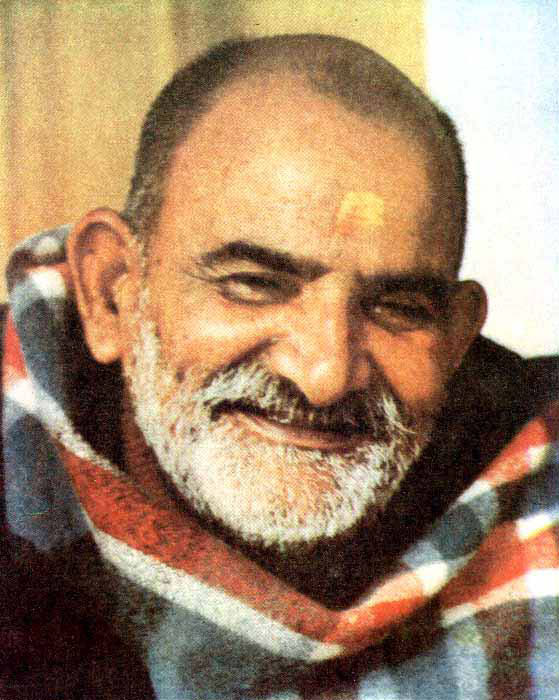Neem Karoli Baba
Originally named as Lakshmi Narayan, and known by many other names, Neem Karoli Baba was born at Akbarpur in presentday UP, probably around 1900 AD. At a very young age he went to Gujarat where he lived at a place called Bavania, by the side of a lake at a little temple. Later he shifted his residence to various other places. During his life time he built many temples, helped many people and was visited by many people. In the western world he was made popular by Baba Ram Das and Bhagavan Das through such works as "Be here now" and "It is here now". Though he left his physical body at Vrindavan in 1973, many of his devotees still experience his physical presence and receive his blessings and guidance.


